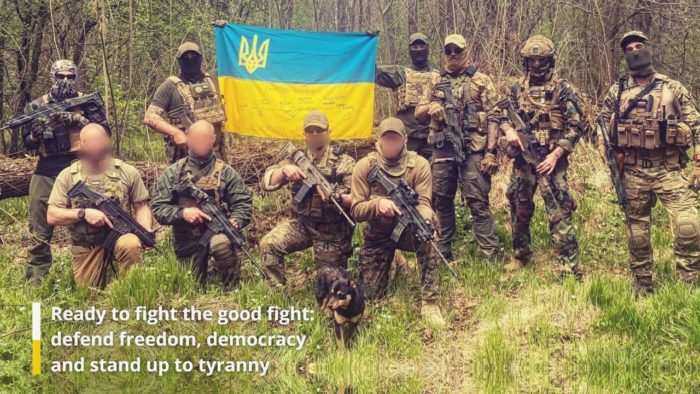In an interview with Euromaidan Press, he shares why foreign fighters keep coming to Ukraine despite the risks, whether Ukrainian locals support the International Legion, and whether legionnaires would allow themselves to be taken alive by the Russians.
The International Legion for the Defence of Ukraine (ILDU) was created on 27 February 2022 by the Ukrainian government and signed into law by the President of Ukraine. It is composed of battle-hardened volunteers and veterans from a broad spectrum of ideologies, willing to fight for Ukraine against the Russian aggressor.
We sat down with Damien Magrou, M&A and Antitrust associate, international lawyer, and spokesperson for the International Legion, to find out more about how the Legion functions, what motivates foreign fighters, and where this war is heading.
It’s a very brutal war, even for experienced veterans who fought in Iraq and Afghanistan
CC: What’s the current status of foreign fighters in Ukraine? By current status, I mean the number of fighters, number of locations where they are deployed, number of countries represented, etc.
DM: Well, I can’t tell you much because we don’t communicate numbers to the outside world. But, I can say that we’re deployed in all the directions of the front. And, last time I checked, we have 55 nationalities represented.
CC: But, can you tell me how many fighters have been killed in combat?
DM: I’m afraid I can’t. As you know, the Ukrainian Armed Forces and the Ukrainian government have a strict policy of not commenting on the number of losses and that applies to us as well. We have announced some losses, but these are not exhaustive.
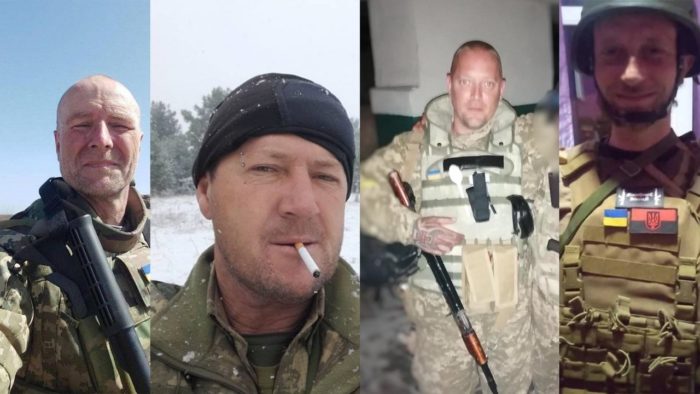
CC: It was reported that an ILDU unit was deployed to Sievierodonetsk in Luhansk Oblast. The Ukrainian Army has retreated from the city. Can you tell us something about that?
DM: Yes. Our participation in Sievierodonetsk is public record. As I mentioned before and for reasons of security, I can’t comment on our unit’s position at present, but I can assure you that both civilians and the Ukrainian soldiers were ordered to leave the Azot chemical plant in Sievierodonetsk.
CC: The war is entering its fifth month. Have many legionnaires left your organization?
DM: Yes, we have seen a certain turnover. Some people come to Ukraine, stay for a while and then decide to go home. But, our policy has always been very clear, from the very start of the war. Each fighter signs a contract with the Armed Forces, but anyone who wants to be discharged, can be discharged.
You may remember that the Verkhovna Rada adopted a bill and the President signed it into law - sometime in May, I believe - that foreign fighters can now terminate their contract with the Armed Forces at any time unilaterally. That is now guaranteed by law. So, in the beginning, it was done as a matter of policy and now it’s by law. But, we’ve always let people go. I think it’s important for potential legionnaires to know that.
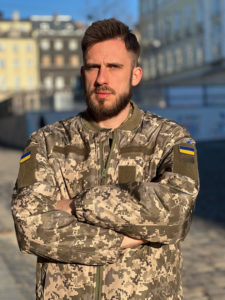
CC: How would you qualify this war in the middle of Europe?
DM: This is a very brutal war. Even veterans of the wars in Iraq and Afghanistan often tell us that this war is the worst they’ve seen. The Ukrainian Army is obviously the underdog, especially in terms of heavy firepower.
Moreover, it’s a completely different type of war from what they’ve seen elsewhere. In Iraq and Afghanistan, they served in NATO armies. They were on the strong side, and were assured of air support and firepower; if they were wounded, they were immediately evacuated by a medevac helicopter. So, this is not the war they were expecting. It’s a lot tougher, more brutal.
In the end, something happens. When people are confronted with the brutal reality on the ground, they realize that it’s not for them and decide to go home.
CC: Have you encountered any difficulties with the Armed Forces of Ukraine, either administrative or military?
DM: As you know, we’re fully integrated into the Ukrainian Armed Forces. We receive all-round support from the higher levels of the leadership of the Armed Forces. On our side, we also have commanders and superiors; we have subordinates; we are part of a chain of command and we respect that.
The International Legion is motivated by a sense of duty, a desire to act and do something
CC: What is the current mood inside the Legion, among the legionnaires?
DM: The morale of the Ukrainian Army has been really quite high since the beginning of the war. It’s the same inside the Legion. There’s a very high level of confidence that we will continue to defend every inch of Ukrainian territory and that Ukraine will win this war.
Of course, the intensity of the fighting in Luhansk Oblast is heart-breaking to witness, but I do believe that the Ukrainian Armed Forces have achieved their objective, their assignment in the Donbas. The fact of holding Sievierodonetsk and Lysychansk for so long has forced the Russians to concentrate a large proportion of their available combat forces in this area and has distracted the Russians from other axes of advance. This has allowed Ukrainian forces deployed elsewhere - especially on the southern front, in Kherson Oblast -- to gain much better positions.
So, on the whole, the last weeks in the Donbas can be described as a “cautious success” in terms of pinning down a large number of Russian forces in one place and a strategically “calculated withdrawal” for the Ukrainian Army.
CC: What actually motivates foreign fighters? Are they still coming to Ukraine? And, will you be able to keep up the momentum and enthusiasm despite the grinding pace of the war?
DM: Foreign fighters are still arriving, but not in great numbers like at the start of the war. First, this is because the attention of the international community has turned away from Ukraine. Second, our recruitment requirements are more strictly imposed. We only take people with live combat experience. But, the pool of experienced candidates - those that are willing to fight - is getting smaller and smaller.
As for motivation, each person has their own reason. But, there’s one recurrent theme that each legionnaire mentions – a feeling of duty, to act and do something after seeing the horrendous war crimes being committed in Ukraine every day. They feel they have to respond, that they have a moral obligation.
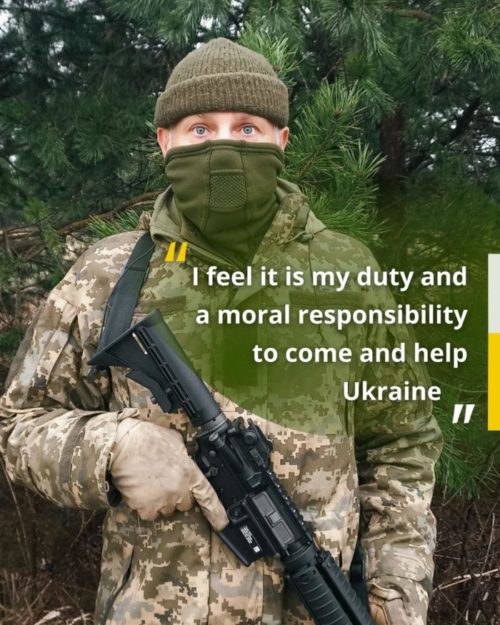
Of course, there are other variants. Legionnaires from Central Europe - Poles, Slovaks, the Baltic States, etc. - say that besides helping the Ukrainian people, they are defending their Homeland. They realize that if the Russians are not stopped in Ukraine, their countries will be next. Legionnaires from Western Europe say they’re fighting to protect the civilian population, defending Ukraine’s democracy. North Americans talk more about freedom and the fight between freedom and dictatorship.
CC: There’s been much talk about an offensive from Belarus. What can you tell us about that?
DM: I don’t believe that, and for several reasons.
- At this point, they don’t have the firepower to mount a successful attack from the Belarusian border. Of course, the situation is fluid, and if Russia decides to bring back most of its forces from the Donbas, the situation might change.
- Lukashenka himself. He’s been resisting pressure from the Kremlin to enter fully into this war. He realizes what this move might cost him politically.
- Many Belarusian soldiers support Ukraine; if they were sent to fight, many of them would refuse to go or would surrender to the Ukrainian forces as soon as they crossed the border. That’s what I hear from my Belarusian friends.
- In the event of civil unrest in Belarus, Lukashenka wants his army close by his side to be able to crack down on the activists.
But, the only way I can see an attack from Belarus happening is if Putin gives Lukashenka an ultimatum if he stops supporting and bankrolling the Belarusian dictator. But, I think that even Putin sees the strategic risks of such an action.
All legionnaires love homemade varenyky, so if you see one of our guys, don’t hesitate
CC: The International Legion is deployed all over Ukraine. So, what is the reaction of locals to these foreigners dressed in Ukrainian military uniforms and fighting for Ukraine?
DM: Extremely positive! I myself was very surprised, but it’s extremely positive! Even in Kyiv and other cities, the civilian population is extremely supportive. They come up to us in the streets, thank us, and shake our hands. An incredible level of support!
I was expecting more demands for justification, more suspicion on their part, and more difficulties, but it’s quite the opposite. It’s great for the morale of our troops. And, believe it or not, this support is even higher in the small towns and villages.
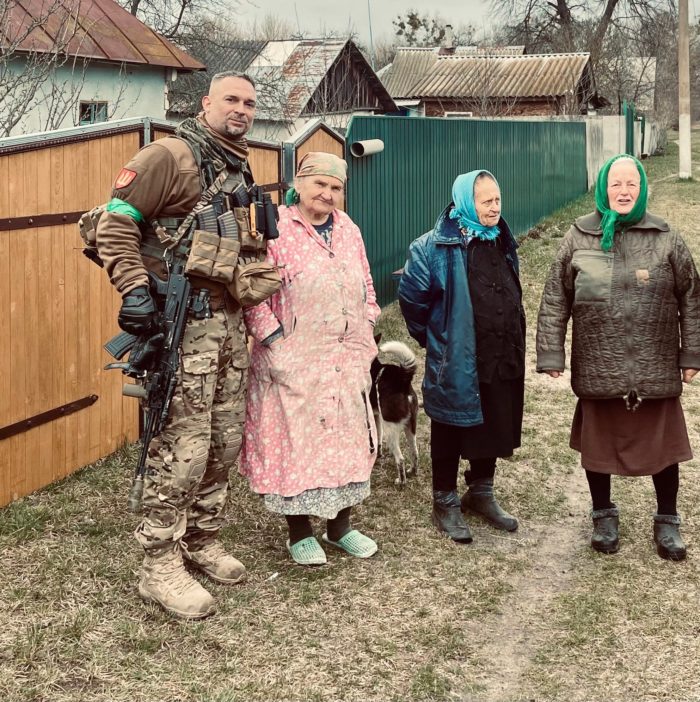
Here’s a short anecdote. One of our units was stuck under heavy artillery fire in a small village in Kharkiv Oblast. A few locals approached them and showed them a better hiding place, offered them food and drink. Our guys made friends with the local babushkas, who brought them home-made varenyky.
Yes, definitely, the civilian population, even in the distant eastern villages, manifests a very high level of support for the Ukrainian Armed Forces. The locals basically support us in various moral and practical ways. In fact, our job would be much harder if not for the civilians who bring donations, food, and local knowledge.
Oh yes, one more thing… All the legionnaires just love homemade varenyky, so if you see one of our guys, don’t hesitate!
CC: Three foreign fighters were recently captured and sentenced to death by the so-called “DNR/LNR”…
DM: I’ll clarify that straightaway. Those fellows - one Moroccan and two British nationals - aren’t legionnaires, but relatively long-serving members of the Ukrainian Armed Forces. They had signed a contract with the Ukrainian Army prior to the beginning of the invasion in February. However, their case is very interesting for us, because it’s indicative of Russia’s intentions. I have to say that it’s really quite chilling.
We have confirmed that one of our legionnaires, Andrew Hill, is in captivity. He was captured on the southern front, near Mykolayiv, but we have no knowledge or news about his whereabouts. It’s very worrying, as we don’t know what to expect, what’s awaiting our guy.
I’ll repeat what I’ve said many times before. We strongly condemn such illegal, sham trials. We remind Russia that these soldiers are members of the Ukrainian Armed Forces, so they are fully entitled to POW status. Thus, putting them on trial is a breach of the Geneva Conventions.
We call on the Russian authorities and their proxies to respect their obligations under the Geneva Conventions and grant the International Red Cross and other international organizations access to the prisoners.
Ukrainians are pushing for a vigorous counterattack and want to throw the Russians back to the borders
CC: Do these instances of capture, imprisonment, and sham trials have an impact on motivation and recruitment?
DM: It’s too early to answer that because there’s always a delay of about two-three weeks after a major event. For example, we had a spike in arrivals after the horrors of Bucha and Irpin went public.
Personally, I don’t think it will have an effect. Our legionnaires make a very courageous, momentous, and difficult decision when they come to fight in a war-torn country, in a very brutal war. They sign up with full knowledge of the risks that they’re taking.
The majority of legionnaires I’ve talked with say that they would never allow themselves to be taken alive by the Russians. If they have but one bullet left, it would be for themselves, because they have absolutely no confidence in Russia’s treatment of POWs. Our guys assume the absolute worst scenario in terms of torture, public humiliation, parading on TV and other media, criminal prosecution, the death sentence, etc.
CC: Can you offer our readers a prognosis or personal view on what is coming? What can the world look forward to with regard to the war in Europe?
DM: First of all, I personally don’t believe the war will last for many years. Why? Well, it has to do with the attitude of the Ukrainian people. Ukrainians have been at war since 2014, so they know very well how a conflict can freeze or fester for many years on end. And, that’s what’s been happening in the Donbas for the past eight years.
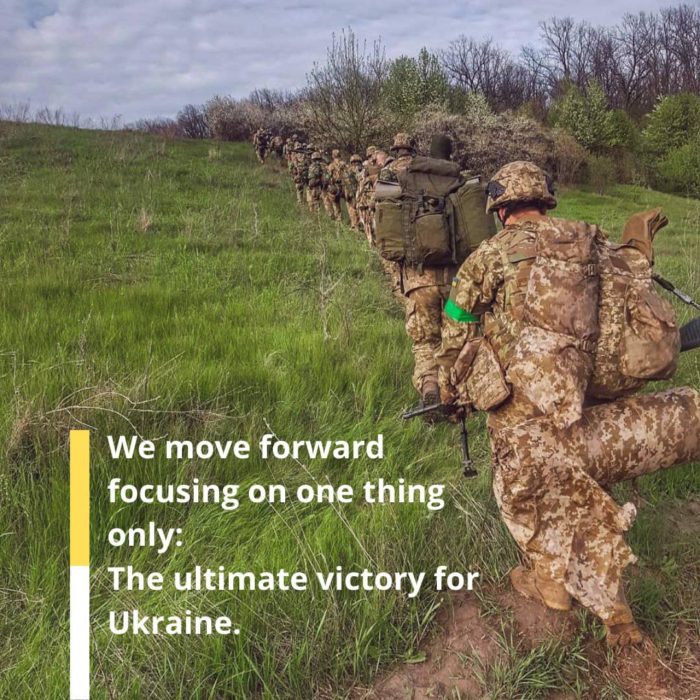
There’s a very strong level of support among the Ukrainian population for a vigorous counterattack and an even stronger desire to push the Russians back to Ukraine’s internationally recognized borders. Most Ukrainians understand that this will be very costly, but they are willing to pay the price. So, both the political and military leadership have no choice but to pursue an assertive military policy and end the war as quickly as possible.
Moreover, we would see some very negative consequences if the war were to drag out another two-three years, especially in terms of the return of all the refugees who left Ukraine. If the war drags out, these people will not return and this will have dire consequences for Ukraine’s economy and demography. That would be a tragedy! As it is, Ukraine has lost approximately 20% of its population in the past four months.
Therefore, I believe we’ll be seeing some very assertive actions from the Ukrainian Armed Forces in the months to come. And, my hope is that by the end of this year, it will all be over and done with.
My prognosis in military terms is that we still need some time to gather our forces, to receive more supplies of heavy weaponry from the West before the Armed Forces can mount a successful counteroffensive. We all know that this is planned and it will happen. In addition, the morale in the Ukrainian Armed Forces is very high and totally supportive of a counterattack.
Despite the gritty nature of this war, and the heavy losses, I believe all this will happen. My only worry is the crazy, irrational reaction from the Kremlin, meaning the use of weapons of mass destruction on civilians. Once the tide turns against the Russians, I’m very concerned about what may happen on that front.
Russian forces used sarin gas in Syria, and there are grounds to believe that weapons of mass destruction are being used in Ukraine
CC: Are you talking about Russia using tactical nuclear weapons?
DM: Possibly, yes. Possibly chemical. Possibly biological. At the beginning of the siege of Mariupol, there was something that was characterized as a “trial-balloon floating exercise.” It was confirmed that a drone had dropped a “poisonous substance of unknown origin” - assumed to be sarin gas – and some experts speculated that Russia was carrying out some sort of test. It was confirmed by the Ukrainian side. Actually, it was a rather small-scale chemical attack; one person was reportedly injured and the description of his symptoms by the Ukrainian forces fully fit that of the effects of sarin gas.
I’ve also read several reports about Moscow recruiting Syrian fighters, among whom there are several experts in explosives and chemical devices. And, we all know that Russian forces used sarin gas in Syria. It’s not too difficult to connect the dots and it clearly causes much concern.
Russian aircraft drop cluster bombs with ‘Petal’ mines in Kharkiv Oblast
CC: Well, Russia has already used cluster bombs and other forbidden devices in Ukraine…
DM: Unfortunately, neither Ukraine nor Russia is party to the convention on the abolition of cluster bombs. So, technically speaking, Russia can “legally” use such deadly devices within the bounds of a military engagement zone, as it did not sign the 2008 Convention of Cluster Munitions
.
Cluster bombs are so indiscriminate in their targeting that they often maim or kill civilians. Therefore, using cluster bombs on civilians is considered a war crime by the International Criminal Court.
Keep the weapons coming, but more and faster
CC: Do you have any major worries about arms supplies to Ukraine? Too little, too late?
DM: Yes, definitely. There isn’t enough coming in and it’s not coming in quickly enough. And yes, this leads to more losses, more injuries. Ukrainian officials report up to 200 casualties every day.
On the other side of the coin, weapons deliveries have been increasing and our western partners are pledging more heavy artillery and ammunition. The HIMARS have arrived in Ukraine and the White House has announced more. They always start small and increase little by little.
As much as we all would like to see more weapons, on the whole, I understand that Ukraine and the Ukrainian Armed Forces are very grateful to the US and the UK, first and foremost, and to all the Allies.
I’ll just say this: Keep it coming, of course! It’s not enough, of course! It’s coming too slow, of course! We’ll keep up the pressure, of course! Lastly, there are many diplomatic considerations here that are not within my competence, so I can’t expand on this topic.
CC: What about NATO’s stance… this no-no policy on tanks and aircraft?
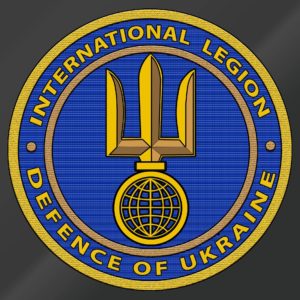
DM: I think it’s bullshit! And, I don’t think it’s entirely true because Ukraine has received these weapons. Not nearly enough, I must say, but these taboos have been breached thanks to our Central European neighbors. The first to send tanks were the Poles and the first to send planes were the Slovaks. We’re very indebted to both countries for breaching this taboo.
Later on, as I understand, there were loads of deliveries of spare parts that allowed us to repair grounded aircraft. We’re seeing some movement on this front as well, in terms of tanks and aircraft.
So, first of all, it’s bullshit and second, it’s not even true. In the end, I don’t think we can talk about a united NATO stance on this issue, and neither should there be one.
Of course, Jens Stoltenberg has done a relatively good job in keeping the Alliance somewhat united. Yes, he’s got a very difficult job and he’s managing it quite well. But, I don’t agree with this policy. It’s hurtful to Ukraine and NATO, but thankfully, it’s not working.
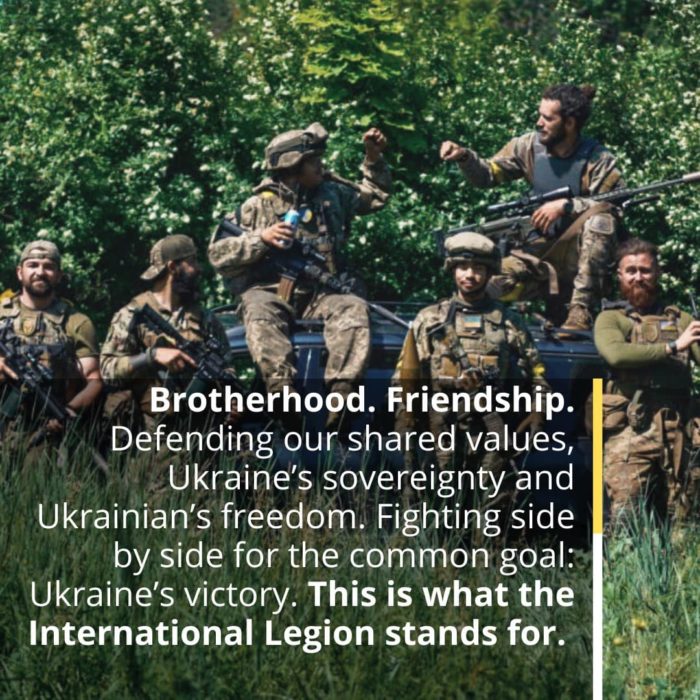
CC: Thank you, Damien! What final message would you like to transmit to our readers and the world at large?
DM: We are living in historic times. This is a new period about which many books will be written, many movies will be shot for generations to come. As for the International Legion and its members… sometimes, human history just pulls you into unexpected events when you have to take a stand and take on moral responsibility for your actions.
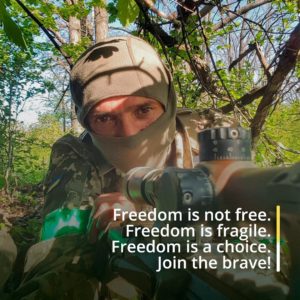 We need your support to be able to continuously supply our troops defending Ukraine on the ground. International Civil Front (ICF) is an initiative started by our friends in Norway, working with us and for us to provide support and help us win this war.
We need your support to be able to continuously supply our troops defending Ukraine on the ground. International Civil Front (ICF) is an initiative started by our friends in Norway, working with us and for us to provide support and help us win this war.
ICF is an NGO co-operating directly with the International Legion (ILDU) that consists of a large group of internationals giving the ultimate sacrifice as they are fighting for a higher cause that will benefit others before themselves.
Follow the link PayPal Civil Front to donate and ensure help that is very much needed and appreciated by our people from the international community on the ground inside Ukraine.
We at ICF make sure donations come to rightful use only! Receipts for all purchases will be published monthly for you as a donor to see how your contribution has come to help. Please help, some purchases will mean the difference between life and death for the Ukrainian supporters inside Ukraine!
Read more:
- "Together we defeated Hitler!" Ukraine calls on foreigners to join new International Legion
- How to join Ukraine's Foreign Legion of Territorial Defense
- Race against time: Ukraine runs out of ammo, calls for MLRS, artillery – US “willing to provide” everything needed
- What weapons for Ukraine would help it win the war against Russia
- Many countries ask to keep the weapons they give Ukraine a secret – Ukraine’s RNBO chief Danilov
- Why long-range Western MLRS can become a game-changer for Ukraine
- 12 reasons why the West should arm Ukraine, now!

